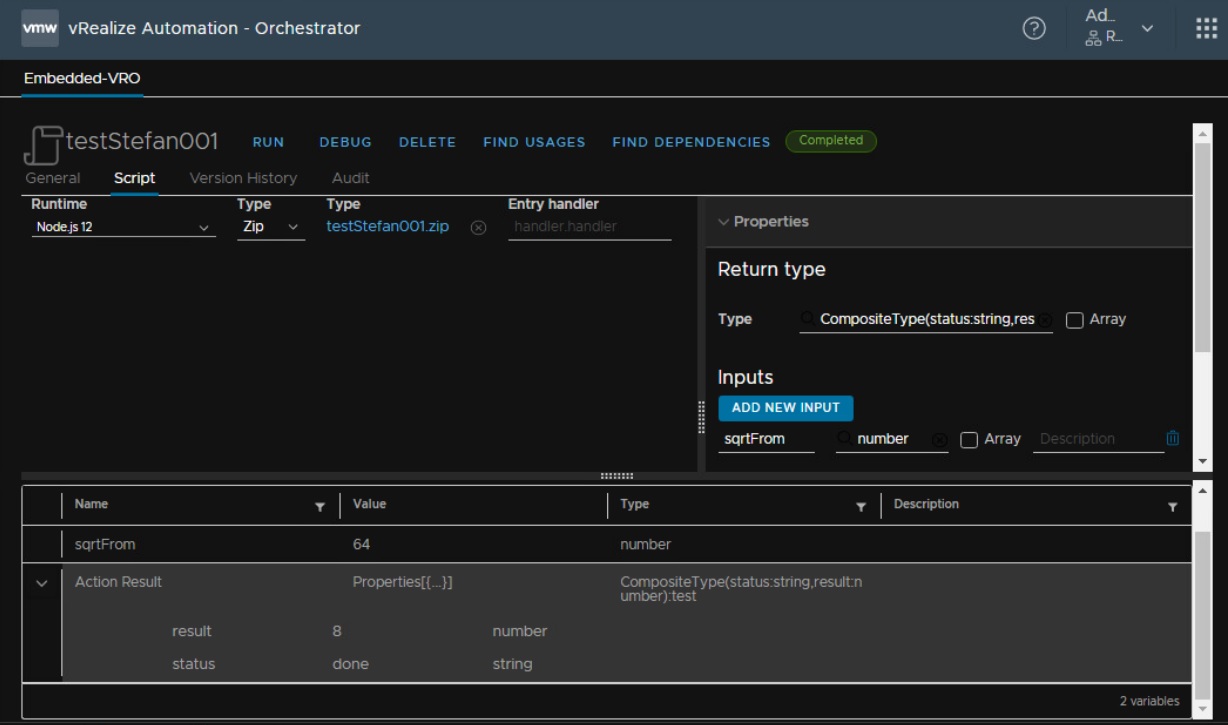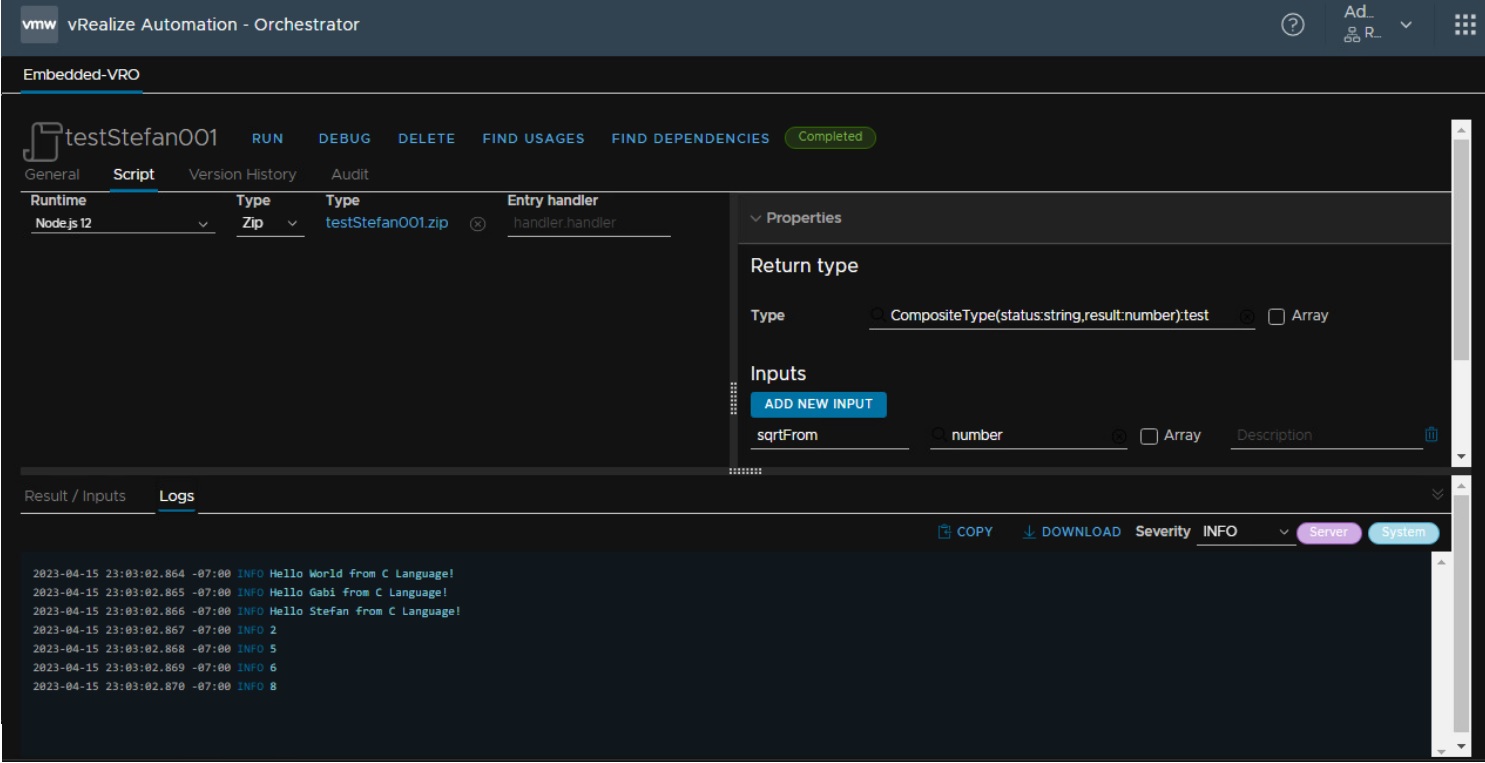C and C++ have been very popular programming languages for a long time and still are today. Many consolidated program approaches and libraries exists. With Emscripten is it possbile to transfer existing C / C++ projects into WebAssembly. This kind of output, which is generated by Emscripten, can be used seamlessly with Node. And Node is one of the platforms that Aria Automation offers as runtime engine. This is definitely worth a look to see if C / C++ programs can be made to work with Aria Automation.
Use C / C++ Language via Node
Preparations
The download, installation and setup are described in detail in the section of the same name on Emscripten's site. It is very simple and works without any problems. After veryfying the installation, Emscripten can be used.C Code
To check it I use this tiny C program with two functions. The first function hello outputs Hello World and the second function int_sqrt calculates the squareroot of the given number. The second function is part of the Emscripten example, how to interact with code. |
Save this file as helloWorld.c.
Compile the C Code to WebAssembly
Now we compile the code with the following command:emcc helloWorld.c -O3 -o helloWorld.js -s EXPORTED_FUNCTIONS=_helloPrint,_helloReturn,_int_sqrt,_calloc,_free -s EXPORTED_RUNTIME_METHODS=ccall,cwrap,UTF8ToStringAfter compilation we have two new files, helloWorld.js and helloWorld.wasm.
Aria Automation Handler
In the next step we build a handler program to call the functions on the different ways, direct call, ccall and cwrap. A detailed explanation can also be found in the Interacting with Code section. However, the calls and returns are very simple to understand. |
Zip
Now we build a zip file as it is described in the VMware documentation. All files can be packed together, directories are not necessary.
Execution
Now we can add the zip file in the Orchestrator Node.js runtime and set the inputs and return type.
Everything works well, as we can see.

Three times the helloPrint call, four times helloReturn call and four times int_sqrt delivers the expected results. Input and output values are also processed and returned correctly.